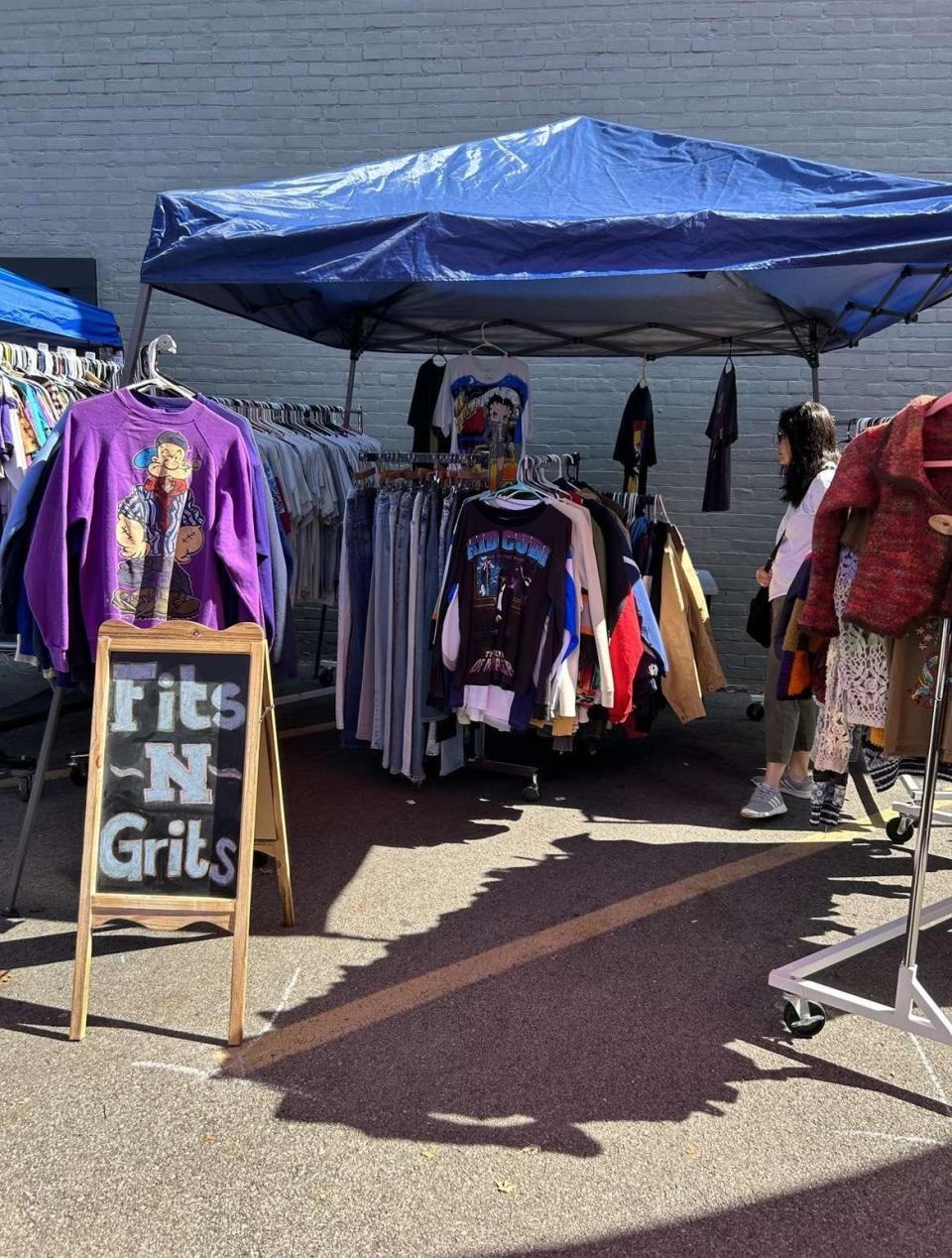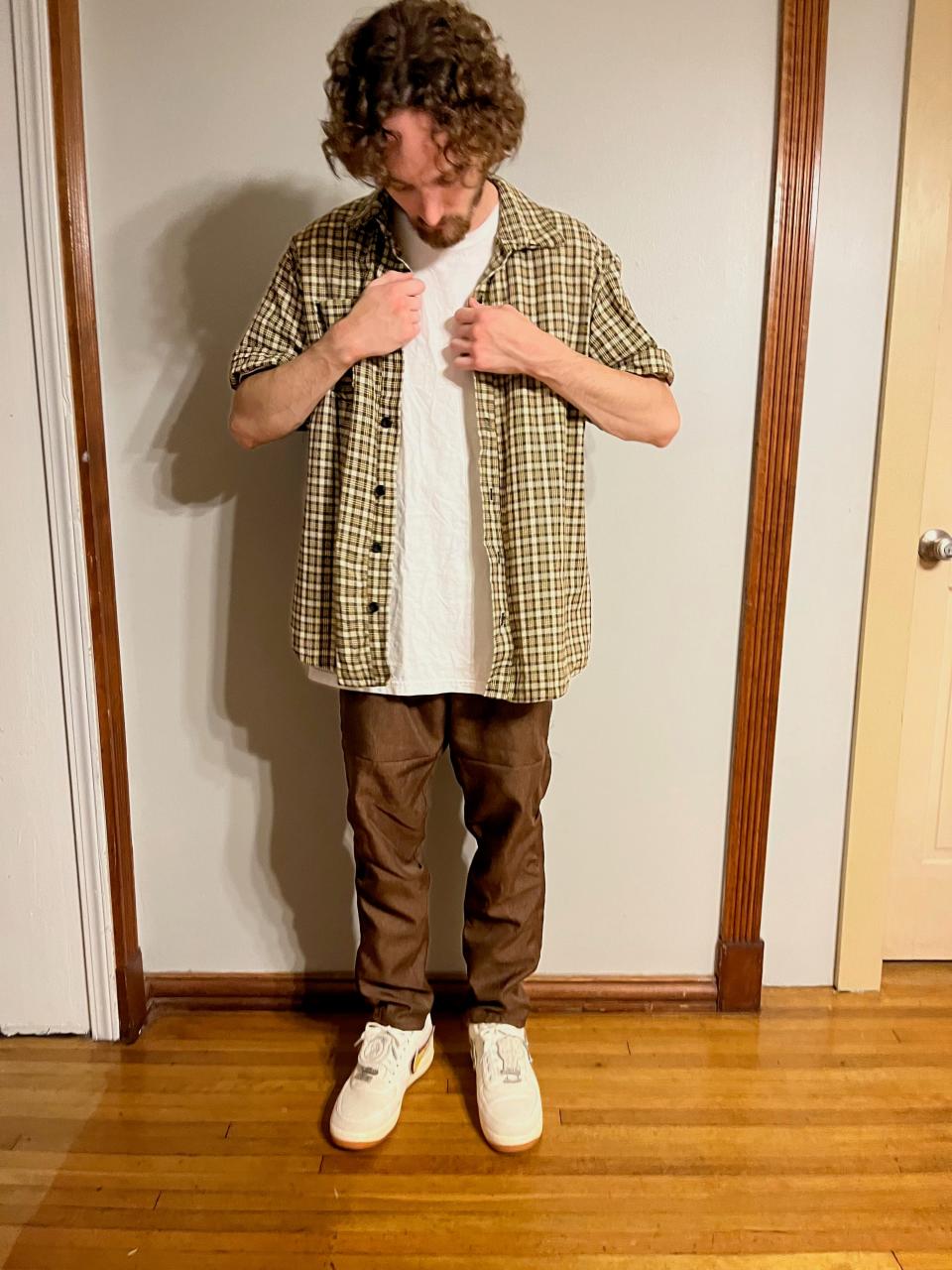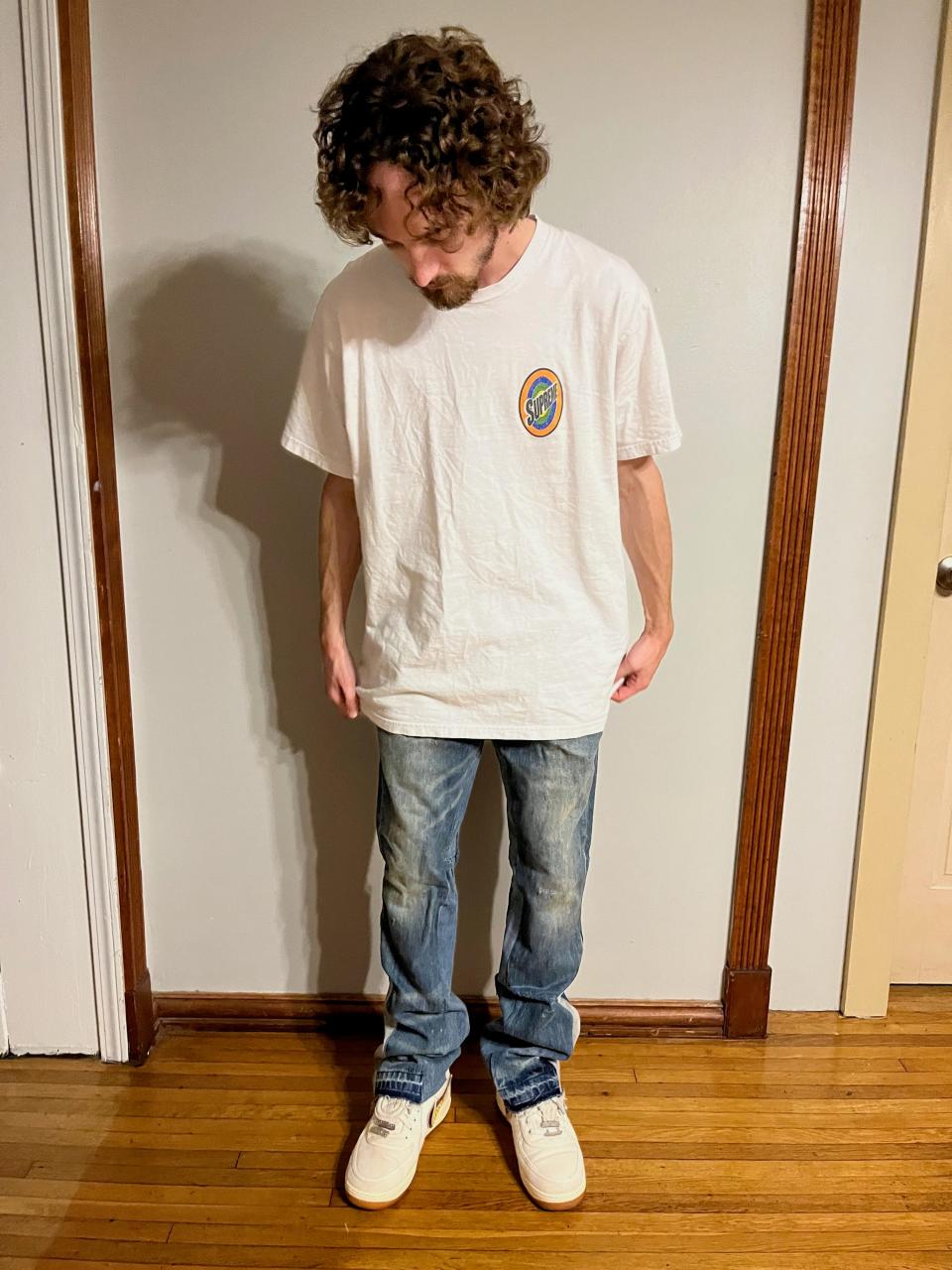Moving on from fast-fashion: shopping sustainably
Editor's Note: The following is part of a class project originally initiated in the classroom of Ball State University professor Adam Kuban in fall 2021. Kuban has continued the project, including this fall semester, challenging his students to find sustainability efforts in the Muncie area. The students pitched their ideas to Deanna Watson, editor of The Star Press, Journal & Courier and Pal-Item.
MUNCIE, Ind. – In a world increasingly aware of fast-fashion's harmful environmental and health impacts, the quest for sustainable wardrobe choices is growing rapidly.
Extensive landfill use, fast-fashion consumption and the over-purchasing of low-quality clothing are harming the environment. In a 2020 study by Toshiro Semba, Yuji Sakai, Miku Ishikawa and Atsushi Inaba titled "Greenhouse Gas Emission Reductions by Reusing and Recycling Used Clothing in Japan," it found that globally, 73% of used clothing is either landfilled or incinerated.

Additionally, according to Cheryl Fenton's 2023 Indy Star article, "Sustainable Fashion Brands to Shop Right Now," the fashion industry creates roughly 100 billion items annually, selling 80 billion and discarding 20 billion in landfills. Sustainable alternatives like upcycling, thrifting and reselling are gaining popularity as eco-friendly solutions.
Some college students in Muncie, Indiana, have embraced these alternatives, choosing to build creative, lifelong wardrobes.
Mitchell Wiley, a Muncie local, began his journey toward a more environmentally friendly and unique fashion choice at the age of 16. He transitioned from fast-fashion to vintage reselling, primarily using the Depop app, and occasionally participating in vintage popup shop events. Wiley turned his passion for clothing into a career.
"Fashion, in my opinion, was the biggest way for me to express myself from a young age, so I figured out how to monetize it. I knew I loved clothing, so if I could make money from it, I knew I'd be happy with my career," Wiley shared. Since 2019, vintage reselling has been Wiley's full-time occupation. He works to cater to his customer base, primarily mid-20-year-old college students, scouring thrift stores every day of the week.
Wiley prefers the unique and vintage feel of well-made secondhand clothing and does not support fast-fashion. He empathizes with lower-income individuals and families who may feel fast-fashion is their only option but believes affordable, high-quality items can be found.
In ThredUP’s 2022 Gen Z Fast Fashion Report, it was found that 45% of college students buy into fast-fashion due to the temptations that fast-fashion offers, like low prices for large quantities of clothing. To support individuals with lesser incomes, he prices his goods $10–20 below market rates, offers $5 options and provides discounts on apparel bundles. Wiley encourages people to explore local resale shops, and even consider reselling as a hobby. As he puts it, "Reduce, reuse, recycle, keep clothing out of landfills, and on our backs!"
In April 2022, Lily Brannon, a graduate from Ball State University and longtime thrifter, opened Lily's Labyrinth, a vintage store in Muncie, Indiana. Her inspiration struck during a thrifting trip with a friend in February 2022, leading to her filling her home with curated vintage items. Just two months later, she launched her store, which has since become a popular destination for Ball State students. It has also earned the silver award in Muncie's Quest for the Best for two consecutive years. Lily's Labyrinth offers a diverse range of products, including clothing, home decor, inclusive sizes, and regular discount and sale events.
"I feel vintage clothes are cool since they've been worn by someone else. It was made in America rather than China, where most clothing is now, and the quality is much better,” Brannon shared. The 2023 Annual Resale Report from ThredUp states that "resale is expected to grow nine times faster than the broader retail clothing sector in 2027." This speaks well for Brannon's business and suggests that the demand for vintage apparel and resale will rise. For people who wish to start thrifting or maybe start their own vintage business, Brannon advises going often, taking your time, and not skipping any sections.

In addition to the various alternatives to fast-fashion, Trevor Rapoport, a Ball State fashion industry studies major graduating in 2025, advocates upcycling fashion. Upcycling involves transforming old clothing that no longer fits, has stains, or simply isn't to one's taste into fresh, wearable pieces. Rapoport initially began altering his own clothes in college as a hobby, modifying items he liked but that didn't quite fit. After taking a beginning fashion course at his college and learning how to use a sewing machine, he expanded his skills, turning poorly fitting t-shirts into patches on jeans. Rapoport draws inspiration for his designs from his favorite NBA stars and music artists.
"I don't think fast-fashion is necessary when you can just learn to make whatever you want,” Rapoport stated. He wants to see change since he thinks fast-fashion is currently one of the world's worst polluters.
An article from 2022 stated that “the fashion industry is responsible for 10% of annual global carbon emissions, more than all international flights and maritime shipping combined.” His objections to these fast-fashion businesses' use of technology and materials extend to their immoral treatment of their employees. Rapoport currently only creates items for his own closet, but he hopes to expand his love beyond a hobby by accepting commissions from other people.

"I think more people should try making their own clothing alterations. It's a skill that gets a lot simpler with practice and would definitely help a lot of people's personal closets,” Rapoport shared.
[PHOTO 2&3 SIDE BY SIDE: TREVOR RAPOPORT1 AND TREVORRAPOPORT2]
Photo by [Natalie Cauffman] With the rise of fast-fashion consumers, comes the rise of textile production as reported by Nikita Shukla in an article, "Global per capita production of textiles increased from 5.9kg per year to 13kg per year from 1975 to 2018.” With excessive amounts of clothing and limited closet space, this trend leads to the ultimate disposal of clothing. Unfortunately, when clothing is discarded into landfills and accumulates, a studyreveals that "they begin producing a number of byproducts, chief among them being methane. Methane is a greenhouse gas that is far more potent than carbon dioxide, absorbing 20 times more heat in the atmosphere." According to an article titled "4 Main Reasons Why Reducing Your Carbon Footprint is Important," reducing greenhouse gas emissions slows the rate of temperature and sea-levels rising, improves air and water quality, boosts the economy and mitigates the rate of climate change.
This article originally appeared on Lafayette Journal & Courier: Moving on from fast-fashion: shopping sustainably

